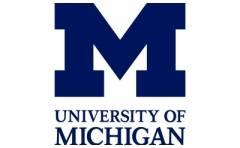Best Health/Health Care Administration/Management colleges in the U.S. 2025
According to the Association of University Programs in Health Administration, degree programs in either health care administration or health care management typically offer students three areas of focus: general management, specialist training, or a specific focal point within the industry. Students will learn the fundamentals of overseeing health services and how to develop, plan, and manage health care operations within health care facilities. They will also develop the necessary basic oral and written communication, problem solving, and managerial skills. Typical courses cover health care system operations and management, business policy, health care economics, behavioral science, health care finance, public relations, information systems, financial management, law and regulations, and health care marketing.
Career opportunities can be found in nursing homes, clinics, mental health organizations, private practices, research institutions, hospices, and hospitals. The annual median pay in 2010 for medical and health service managers was more than $80,000 for those with at least a bachelor?s degree. The health care industry is one of the fastest growing industries in the nation because of aging baby boomers, increasing average lifespan, health care reform, and the advancement of medicine technology. Dedicated health administrators and managers are essential in maintaining and improving health care.
Click Here to See the Best Colleges in the USBest Health/Health Care Administration/Management colleges in the U.S. for 2025

Located in the sunny Miami suburbs, the University of Miami is home to a select offering of esteemed health/healthcare administration/management degree programs via the Miami Herbert Business School. Degreee options include:
-
Bachelor of Business Administration (B.B.A)
-
Bachelor of Science in Business Administration (B.S.B.A.) in Health Management and Policy
-
Master of Health Administration
-
Health Executive MBA program
-
MD/MBA dual degree program (in conjunction with the Miller School of Medicine)

A private Ivy League institution, the University of Pennsylvania is one of the oldest, most esteemed universities in the nation. Through its Wharton School, UPenn offers a unique MBA with a Health Care Management major which, upon completion, results in graduates being “unusually well-qualified” for top healthcare positions. The university also offers a top-ranked Bachelor’s in Nursing and Healthcare Administration (with full or part-time study plans) and an online Graduate Certificate in Health Care Innovation.

A modern school with a historical campus in Washington DC, Georgetown is renowned for its reputation of producing notable alumni. Via its School of Nursing and Health Studies, it offers a Bachelor of Science in Health Care Management & Policy with track options to focus on health management or health policy analysis. The curriculum includes an experiential internship as well as “pre-med and study abroad opportunities.” Grad students have two options — a Master of Science in Health Systems Administration or an Executive Master in Health Systems Administration.

Often compared to the Ivy Leagues, Duke University in North Carolina is a prestigious school for any degree! Duke’s comprehensive 42-credit hour Master of Health Sciences in Clinical Leadership, offered through the School of Medicine, was created in collaboration with its School of Nursing and School of Business. The program provides “real-world examples and hands-on education” to help students become “adept and versatile leaders who can meet the complexities of today’s ever-changing health care environment with innovative solutions.”

Often hailed as a “best value” college, Drexel University in Philadelphia, Pennsylvania is also known for making education more convenient and accessible. Through its College of Nursing and Health, Drexel offers both an on-campus and online Bachelor of Science in Health Services Administration. There’s also a 45-credit online Master of Health Administration degree option featuring a five-day residency and a curriculum “based on the National Center for Healthcare Leadership Competency Model.”

Washington DC’s largest educational institution, George Washington University is a chartered research school with a distinguished roster of alumni. GW offers the following online programs:
-
BSHS in Clinical Operations and Healthcare Management
-
MSHS in Clinical Operations and Healthcare Management
-
Graduate Certificate in Clinical Operations and Healthcare Management
-
Dual BSHS in Clinical Operations and Healthcare Management / MSHS in Health Care Quality
If that wasn’t enough, there’s also an on-campus Master of Health Administration through the Milken Institute School of Public Health.
Charlottesville’s University of Virginia is home to some exciting educational offerings, such as its online Certificate In Healthcare Management. Taught by the School of Continuing and Professional Studies, this certificate requires just four core classes plus two electives. The school also features a flexible online Bachelor of Professional Studies in Health Sciences Management aimed at “working adults who want to advance into leadership roles in healthcare settings.”

Founded in 1817, the University of Michigan - Ann Arbor is a highly-regarded institution known for academic excellence…and a $17 billion endowment! Undergrads can sign up for the 60-credit Full-time MBA Ross Healthcare Management Concentration (which includes a ~10-week internship). For grad students, there’s a two-year Master Of Health Services Administration degree option.

The University of North Carolina at Chapel Hill, aka UNC, features a Bachelor of Science in Public Health and two exciting MHA options via its Gillings School of Global Public Health — a Residential MHA and an online Executive MHA. UNC also offers a dual master’s option, an Executive Doctoral Program in Health Leadership, and Healthcare Administration-related certificates.
Mercer University offers 3 Health/Health Care Administration/Management degree programs. It's a medium sized, private not-for-profit, four-year university in a midsize city. In 2022, 10 Health/Health Care Administration/Management students graduated with students earning 10 Bachelor's degrees.
Find local colleges with Health/Health Care Administration/Management majors in the U.S.
What is Health/Health Care Administration/Management?
According to the Bureau of Labor Statistics, Healthcare Administration jobs are expected to grow by an astounding 32% over the coming decade. That’s a strong sign that healthcare administrators will be in high demand, especially when compared to the average job growth rate of 8% for all occupations. The pay is great, too, with a median annual wage of $104,280 per year (while top earners bring in nearly twice that much).
Also known as Medical and Health Services Management, Healthcare Administration is clearly an excellent career field for students who demand both high wages and a solid job outlook. Degrees in healthcare administration or closely related subjects are essential to get hired, so let’s dig into the details of those academic requirements.
Health/Health Care Administration/Management Degree Overview
Degree programs in Healthcare Administration may also be referred to as Health Management, Health Care Administration Leadership, or similar titles. These programs teach the knowledge and skills needed to oversee and manage various types of healthcare facilities in accordance with strict state and federal guidelines. Programs are offered at the associate, bachelor’s, master’s, and doctorate degree levels.
Students learn both management and business principles related to the specific roles they wish to take on in their future careers. For example, O*Net Online lists the following job titles for workers with Healthcare Administration degrees:
-
Clinical Director
-
Health Information Management Corporate Director
-
Health Information Management Director
-
Health Manager
-
Mental Health Program Manager
-
Nurse Manager
-
Nursing Director
Each of these different roles requires a unique academic emphasis on particular aspects of healthcare administration studies. For instance, students may wish to tailor their degrees to focus more on administrative or clinical skills. Some programs feature specialized options such as radiologic science or nursing.
In general, all healthcare administration degree curricula will include topics related to laws, regulation, compliance, scheduling, billing, staff hiring and training, patient data privacy, healthcare technology, and data analytics.
Students can earn Healthcare Administration degrees at all levels — associate, bachelor’s, master’s, and doctorate. The number of credits for each depends on the type of system the college or university uses. While most colleges rely on the semester calendar system featuring two semesters, some prefer a quarter system.
Associate Degree in Health/Health Care Administration/Management
An Associate of Healthcare Administration degree takes roughly two years to complete, if attending full-time. This degree type requires at least 60 semester credit hours (or 90 quarter hours). Many working students enroll part-time at community colleges or sign up for flexible online courses.
An associate degree provides the foundation needed for advanced degrees. However, it can serve as a standalone degree, qualifying students for entry-level roles such as medical records and health information technicians or healthcare administrative assistants.
While associate-level credits count towards a bachelor’s, earning an associate isn’t required for those who intend to pursue a bachelor’s. In other words, not everyone who completes a bachelor’s applies for an associate degree along the way.
Bachelor's Degree in Health/Health Care Administration/Management
A Bachelor’s in Healthcare Administration can take four years, if attending full-time, or twice that long if going part-time. This degree type requires at least 120 semester credits (or 180 quarter credits). Online options are popular for bachelor’s degrees, though many students opt for hybrid models where they can attend some classes in person while doing others online.
A bachelor of science is the most common degree type for this career field. According to O*Net Online’s career profile, 65% of workers in the Healthcare Administration profession have a bachelor’s, 12% have a master’s, and 19% have an associate degree.
Per BLS, common coursework covers the following:
-
Health services management
-
Accounting and budgeting
-
Human resources administration
-
Strategic planning
-
Law and ethics
-
Health economics
-
Health information systems
Master's Degree in Health/Health Care Administration/Management
A Master’s in Healthcare Administration (MHA) prepares graduates for positions of higher responsibility. Many working students complete a master’s to qualify for better jobs and higher pay. In addition, employers often look for advanced academic credentials when making hiring decisions, especially if their job ads receive several competitive applications.
A master’s requires between 30 - 60 semester credits and typically takes two to three years to complete, if attending full-time. Many online programs are streamlined to allow for completion in roughly a year. Meanwhile, some schools offer dual degree tracks to allow students to finish their bachelor’s and master’s faster, saving time and money. Students should pay close attention to special requirements, such as the need to complete a thesis or capstone project. Note, grad students frequently opt to enroll in MBA programs featuring a specialization in Healthcare Administration, instead of completing an MHA degree.
Doctoral Degree in Health/Health Care Administration/Management
A Doctorate in Healthcare Administration (DHA) is a terminal degree for students wanting to qualify for top positions. These challenging degrees cover advanced topics related to business education and healthcare leadership. Programs may offer a range of specialties:
-
General Health Administration
-
Health Care Leadership
-
Health Care Quality and Analytics
-
Health Policy and Advocacy
Note, it is also possible to obtain a PhD in Healthcare Administration, which is more research-based than a DHA.
How long it takes to complete a DHA varies. Estimates range from two to seven years, but the average is three years. Variables include course load, whether courses are online or in-person, and the institution itself (because some schools require more credits)
Acceptance into doctoral programs requires a minimum GPA and proof of a certain term of healthcare work experience. Applicants submit a resume/CV, essay or statement of purpose, and English proficiency exam scores, as applicable. International students with credits from non-US schools need proof of past coursework equivalency via World Education Services or similar agencies.
DHA graduates are well-prepared to apply for lucrative jobs at larger facilities where they may serve as clinical managers, health information managers, hospital administrators, and nursing home managers.
Certification and Licensure in Health/Health Care Administration/Management
Certain healthcare administrator jobs require licensure. For example, Nursing Home Administrators and Assisted Living Administrators need Registered Nurse experience and therefore would require a state-issued nursing license. The National Association of Long Term Care Administrator Boards administers these licensing exams.
Clinical social workers in healthcare administration also need a state license as well as a master’s degree.
There are several certifications employers may desire applicants to possess, depending on the job description. Certifications include:
-
American Association of Healthcare Administrative Management:
-
Revenue Cycle Executive
-
Revenue Cycle Professional
-
Revenue Integrity Professional
-
Revenue Cycle Specialist
-
Compliance Technician.
-
Association for Healthcare Administrative Professionals — Certified Healthcare Administrative Professional
-
Professional Association of Health Care Office Management — Certified Medical Manager
-
American Health Information Management Association:
-
Registered Health Information Administrator
-
Registered Health Information Technician
-
Medical Group Management Association — Certified Medical Practice Executive
Previously, the American College of Health Care Administrators offered certifications for Certified Nursing Home Administrator and Certified Assisted Living Administrator. However, per their website, they no longer offer these to new applicants. Those who earned certifications previously may still retain/renew them. In addition to the above certs, the American College of Healthcare Executives offers fellowship opportunities for qualified applicants.
What Can I Do with a Degree in Health/Health Care Administration/Management?
Depending on the Healthcare Administration degree you earn (associate, bachelor’s, master’s, or doctorate), you may qualify for a broad range of positions. When searching for jobs, there are several general job titles to be found, such as Health Services Manager, Healthcare Administrator, or Healthcare Executive. Beyond the general terms, there are more specific roles, each with very different responsibilities, salaries, and educational requirements.
Here are a few examples:
Nursing Home Administrator — Responsible for taking care of the business and organizational aspects of nursing homes.
-
Median salary: $121,835
-
Top 10% salary: $148,084 and up
Social and Community Service Managers — Responsible for managing organizations that support local social services.
-
Median salary: $69,600
-
Top 10% salary: $115,800 and up
Medical Practice Manager — Responsible for medical office operations, including admin, HR, and budgetary tasks.
-
Median salary: $63,000
-
Top 10% salary: $88,000 and up
Earning an Online Health/Health Care Administration/Management Degree
Online Healthcare Administration degrees are hotter than ever, as more students seek the flexibility to work around their hectic schedules. Many students have families, full-time jobs, or other commitments that don’t allow for the luxury of traditional campus attendance.
To adjust to the needs of these students, top schools around the country have continued to advance their online program offerings, ensuring the same high quality curricula is offered no matter which format students use to learn. As a result, students have easier access to highly-ranked educational opportunities with fewer barriers than ever before.
In general, online programs are designed to cater to working students looking to switch careers or qualify for a promotion in their current healthcare management role. Today, it is possible to earn any level of healthcare administration degree online, from an associate to a bachelor’s, MHA, or DHA. However, some programs require residency, just as some areas of specialization may have other in-person training requirements.
Online degrees are designed to be more convenient but, by their nature, they cannot impart practical hands-on skills. Thus, you’ll need to gain those through live experiences. That is why so many students opt to enroll in hybrid degree programs, where some classes are taught online and some are done in-person.
By the same token, there may be non-classroom activities (such as residencies) that cannot be done online. Residencies vary in length and may last a week or more, or be split over a series of weekends. They typically involve seminars, lectures, workshops, and shadowing current healthcare administrators. These real-world experiences are valuable for learning and look great on a resume, too!
Note, not every program requires a residency, and not every healthcare administrator employer will look for such training. But ultimately, having a strong mix of academics and practical experience will help graduates land the best jobs possible.
Sample path from associate to DHA:
For those planning to work towards a doctorate, one plan of action might be:
-
Associate degree — Online
-
Bachelor’s — On-campus/In-person
-
MHA — Hybrid
-
DHA — Online
Reminder, whichever path you choose, make certain your program is accredited!
Health/Health Care Administration/Management FAQ
List of all Health/Health Care Administration/Management colleges in the U.S.
| School | Average Tuition | Student Teacher Ratio | Enrolled Students | |
|---|---|---|---|---|

|
University of Miami Coral Gables, FL | 17 : 1 | 19,402 | |

|
University of Pennsylvania Philadelphia, PA | 20 : 1 | 28,201 | |

|
Georgetown University Washington, DC | 19 : 1 | 20,984 | |

|
Duke University Durham, NC | 12 : 1 | 18,023 | |

|
Drexel University Philadelphia, PA | 21 : 1 | 22,344 | |









